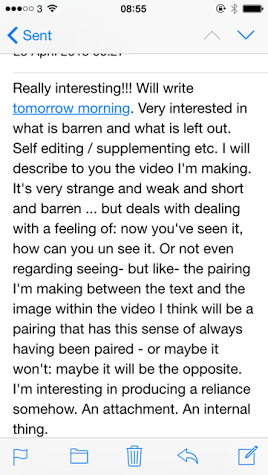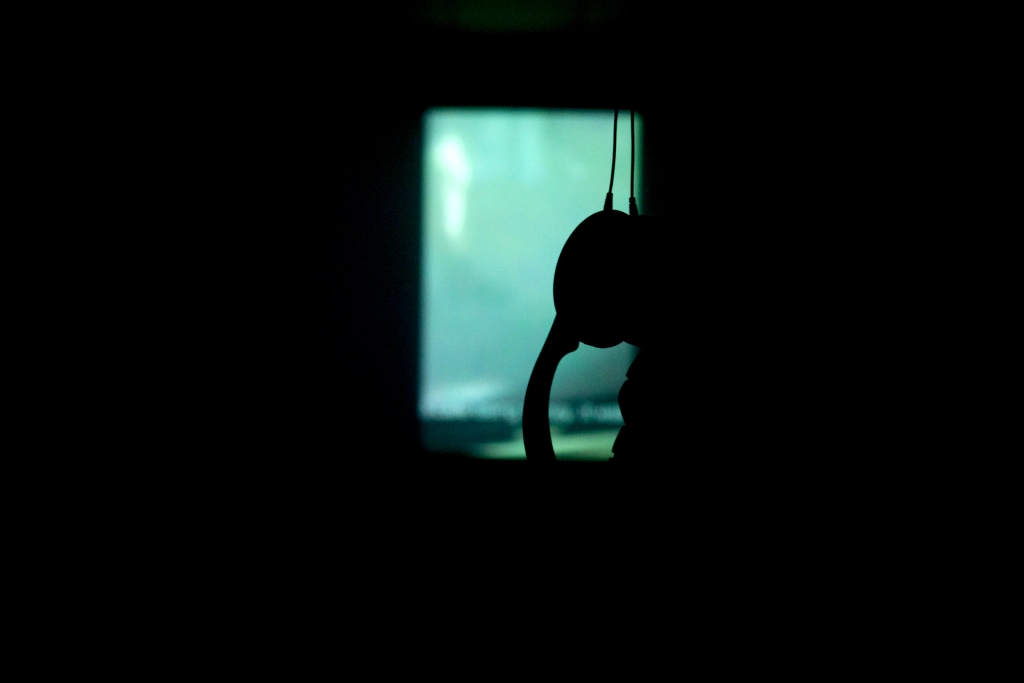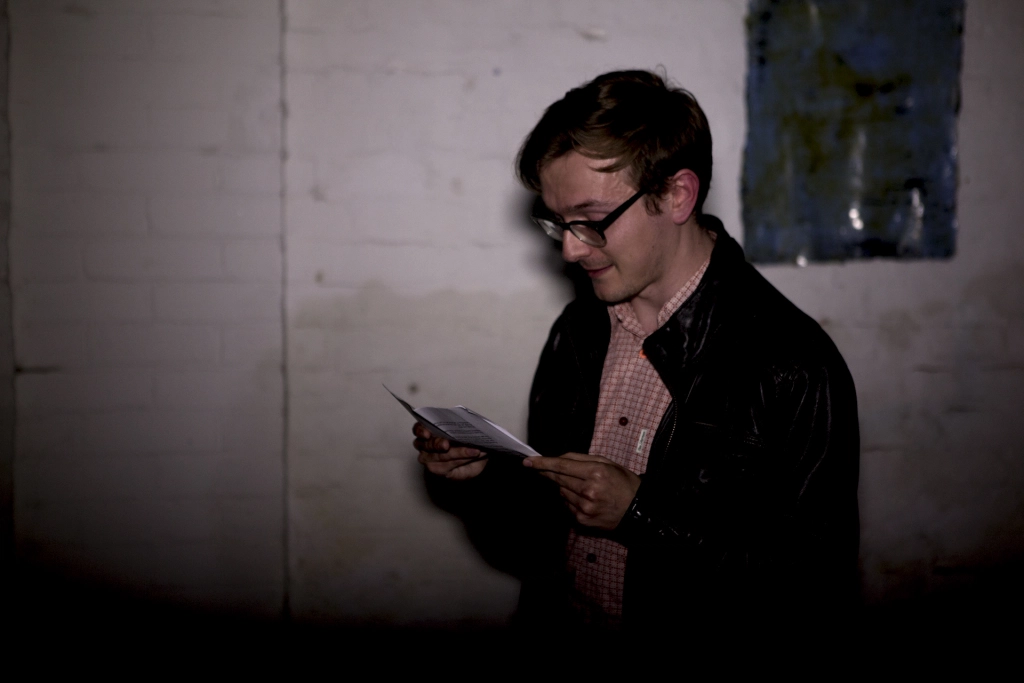Sarah Boulton and James Morland: 'What We Talk About When We Talk About Death'

This text was written as part of The Still Point’s ‘Creative Exchange’ which paired artists, from the Slade, with PhD researchers, from UCL and King’s College London, for an exhibition of visual art work and live readings at FAT RELIC. More details can be found on the blog and photographs from the evening are on our Facebook page.
I am the supposed translator of conversations spanning centuries,
Witnessing poets combatting poets:
A first century exclamation responded to from an eighteenth-century graveyard:
[…] death to us, and deaths anxiety,
Is less than nothing, is a less could be.
For then our Atoms, which in order lay,
Are scatter’d from their heap, and puff’d away,
And never can return into their place,
When once the pause of Life has left an empty space. [Lucretius]
………………
If death were nothing, and nought after death,
If when men died, at once they ceas’d to be,
Returning to the barren womb of nothing,
Whence first they sprung! Then might the debauchee
Untrembling mouth the Heavens; then might the drunkard
Reel over his full bowl, and when ‘tis drain’d
Fill up another to the brim, and laugh
At the poor bugbear Death [Blair]
I decode this ‘death-talk’:
This is a language game congregating around nothing,
Writing on the timeless and unresolvable.
In attempts to make something, I separate my clauses with the trusty colon:
Conning myself into thinking I have some sort of order:
DEATH-TALK: PHILOSOPHICAL DISCUSSIONS
THE DARKNESS OF THE GRAVE: NIGHT AND THE SENSES IN THE GRAVEYARD
SHUDDERING ON THE BRINK: THE EXTREMES OF NOTHING
–
But thinking of this nothing, it is me, not the poet, who shudders on the brink:
Procrastination is the thief of time;
Year after year it steals, till all are fled,
And to the mercies of a moment leaves
The vast concerns of an eternal scene. [Young]
The poets mock my academic practice,
Instead of leading to a solution, they taunt me, as together:
We sigh; and while
We sigh, we sink; and are what we deplored;
Lamenting, or Lamented all our Lot! [Young]
all the magnanimity of Thought
Resolves; and re-resolves; then dies the same [Young]
This is my death song:
To write of death is the thief of life,
Hours spent writing nothing about ‘nothing’.
My writing is about the poetry and emulates its futile ambitions;
The poets’ straining to see around the corner to their own death mimics my academic composition,
Our words are like the first century atoms that caused this whole project to arise:
An endless cycle of regeneration, a stream of chance encounters where some hit and many miss.
In writing on a nocturne darkness where men ‘see not all clear’ [Vaughan],
I instead quote the camera obscura, as a ‘darkened room’,
Referring to the stanza, as a ‘capacious dwelling, a receptacle’.
Returning to semantics to interpret a physical something from their poetic nothingness.
In thinking of death, then, we must relate it to something. It becomes images and myth:
The knell, the shroud, the mattock, and the grave;
The deep damp vault, the darkness, and the worm;
These are the bugbears of a winter’s eve,
The terrors of the living, not the dead.
Imagination’s fool, and error’s wretch,
Man makes a death, which nature never made;
Then on the point of his own fancy falls;
And feels a thousand deaths, in fearing one. [Young]
So in talking about death, I must document this cycle of centuries:
death has become something from a sublime sense of nothing through the fool and error of an imagination. It should instead be seen as nothing by the dissolution of something:
Therefore death is nothing to us, it matters not one jot, since the nature of the mind is understood to be mortal. [Lucretius]
When I talk about death I resolve, and re-resolve about the vast concerns of something and nothing.
–


James Morland is a first year PhD student in the English department at KCL, researching the changing interactions with Lucretius and Epicurean philosophy in eighteenth-century poetry. After spending a year in art school, James has spent the past few years studying English literature, though constantly tries to find ways to tie together the academic and visually creative sides of his thinking. Follow him @jameswmorland
Sarah Boulton is a student at the Slade. She is currently working with [including]: diamond doves, relationships, verbs, internal parts, live editing, light videos, friends and words (talking). http://saraboulton.tumblr.com/
